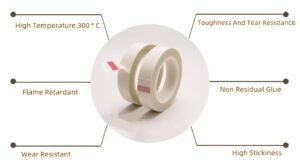Introduction
Sleep is a fundamental aspect of our well-being, playing a crucial role in maintaining good health, cognitive function, and emotional stability. Yet, many of us struggle to get the quality and quantity of sleep we need. Fortunately, you’ve come to the right place to address this issue. In this article, we’ll explore various sleeping tips that can help you improve your sleep quality and overall sleep hygiene. Whether you’re dealing with insomnia, erratic sleep patterns, or just looking for ways to enhance your sleep, “Check My Sleeping Tips” has got you covered.
- Understanding the Importance of Sleep
Before we delve into the tips to improve your sleep, let’s first establish why sleep is so important. Sleep is not merely a time of rest; it’s a complex physiological process that impacts various aspects of your life, including:
- Physical Health: Adequate sleep promotes better physical health by supporting the immune system, reducing the risk of chronic diseases, and aiding in weight management.
- Mental Health: Sleep is closely linked to mental health, helping to regulate mood and reduce the risk of depression and anxiety.
- Cognitive Function: Sleep is essential for memory consolidation, learning, and problem-solving abilities.
- Emotional Well-being: A good night’s sleep contributes to emotional stability and stress management.
- Set a Consistent Sleep Schedule
One of the most effective strategies to improve your sleep quality is to establish a regular sleep schedule. Try to go to bed and wake up at the same time every day, even on weekends. Consistency helps regulate your body’s internal clock, making it easier to fall asleep and wake up refreshed.
- Create a Relaxing Bedtime Routine
A bedtime routine can signal to your body that it’s time to wind down and prepare for sleep. Consider activities like reading, taking a warm bath, or practicing relaxation exercises. Avoid stimulating activities like watching intense TV shows or using electronic devices, as the blue light emitted from screens can interfere with your body’s natural sleep-wake cycle.
- Optimize Your Sleep Environment
The quality of your sleep environment plays a significant role in your ability to fall asleep and stay asleep. Consider the following tips for creating a comfortable sleep space:
- Comfortable Mattress and Bedding: Invest in a comfortable mattress and bedding that support your body’s needs.
- Dark and Quiet: Ensure your bedroom is dark and quiet, and use earplugs or a white noise machine if necessary.
- Comfortable Temperature: Maintain a cool, comfortable room temperature to promote sleep.
- Limit Exposure to Light: Minimize exposure to artificial light, including alarm clocks and electronic devices.
- Watch Your Diet and Fluid Intake
What you eat and drink can significantly affect your sleep quality. Avoid heavy or spicy meals close to bedtime, as they can cause discomfort and disrupt sleep. Also, limit caffeine and alcohol intake, especially in the evening, as these substances can interfere with your sleep patterns.
- Get Regular Exercise
Regular physical activity is another key component of good sleep hygiene. Engaging in regular exercise can help you fall asleep faster and enjoy deeper sleep. However, try to finish your workout at least a few hours before bedtime, as exercising too close to bedtime may have the opposite effect.
- Manage Stress and Anxiety
Stress and anxiety are common culprits for disrupted sleep. To manage these issues, consider relaxation techniques such as deep breathing, meditation, or progressive muscle relaxation. Seeking professional help or counseling can also be beneficial if stress or anxiety significantly impacts your sleep.
- Limit Naps
While short power naps can be refreshing, long or irregular daytime naps can interfere with nighttime sleep. If you need to nap during the day, keep it brief (20-30 minutes) and avoid napping late in the afternoon.
- Consult a Healthcare Professional
If you’ve tried various sleeping tips and still struggle with sleep problems, it may be time to consult a healthcare professional or sleep specialist. They can help identify underlying sleep disorders and develop a tailored treatment plan.
Conclusion
“Check My Sleeping Tips” offers a wide range of strategies to enhance your sleep quality and overall well-being. Remember that everyone’s sleep needs are different, so it may take some time to find the right combination of tips that work for you. Start by making small changes to your daily routine, and with time, you can experience the benefits of a good night’s sleep. Your health and happiness depend on it.
For more information on improving your sleep and finding the best sleep products, you can visit kensleep.com for valuable resources and recommendations tailored to your sleep needs.

















